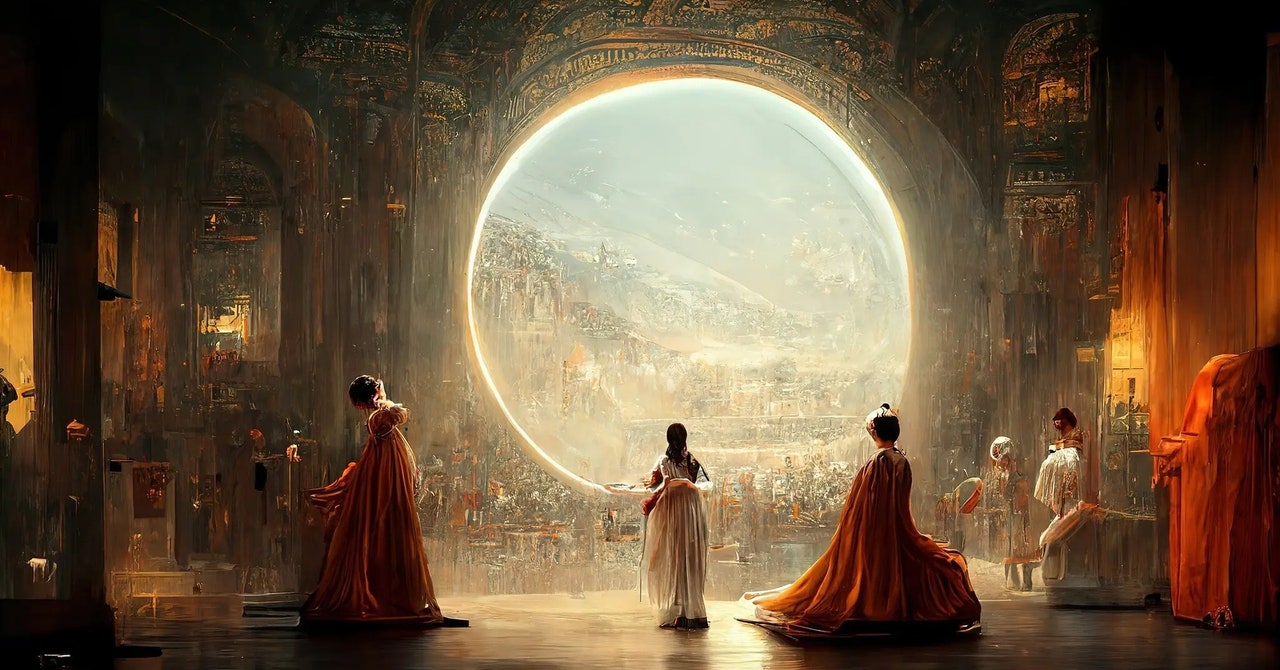- cross-posted to:
- [email protected]
- [email protected]
- [email protected]
- cross-posted to:
- [email protected]
- [email protected]
- [email protected]
Why This Award-Winning Piece of AI Art Can’t Be Copyrighted::Matthew Allen’s AI art won first prize at the Colorado State Fair. But the US government has ruled it can’t be copyrighted because it’s too much “machine” and not enough “human.”



While my thinking is in line with what @[email protected] and @[email protected] have already said, why can’t “AI artists” just do what everybody in a profit-seeking situation does and just lie about it? “No your honor, our studies have shown cigarette smoking is not hazardous to your health,” “yes, your honor, OxyContin is completely safe,” or in this case “yes, your honor, I created this illustration.” If your conscience is really bothering you, you could claim it was AI-assisted. I wouldn’t think there’d be a “Big Eyes” prove-you-painted-that courtroom case. Am I wrong?
It detectable by actual artists, trained eyes, and probably other ai algos. Prompters have no true artistic skill 80 percent of the time, so they rely on AI to even do the finer details.
There are a few actual artists who use AI in the way scammers do (rather than as a tool to enhance their workflow), but they are rare.
Our thinking is not that different. There is a world of difference of describing an image and creating it.
But I have to strongly disagree with the rest of your assessment. Beyond the flood of six-fingered waifu, I’ve seen some beautiful, legitimate works created by this new tool. If you have to use an “ai algo” you’ve already defeated the purpose. It’s illustrations we’re discussing here, not banknotes.
BTW, do you consider Photoshop/Krita/GIMP artists “scammers”? Blender/Maya/Cinema4D artists? Who are these “actual artists” of which you speak?
In any case, we’re still in uncharted territory. And personally I’m not crazy about the work in question. It LOOKS (by my “actual artist trained eyes”) AI generated, regardless of the human Photoshop retouching involved.
This comparison automatically invalidates any point you may have made.
You say our thinking is not so different, and then defend machine-generated art as legitimate creation?
To be clear, when I say AI tools, I mean for collecting references, making poses and future enhanced basic transform/select/etc tools. I don’t mean generating entire complete peices of art.
Selling AI art on platforms that actual artists sell their work on, is a scam. Since illegitimate work is flooding human creations. NFTs are often scams too.
I still think we are more or less on the same page. I also agree with your position on NFTs. Nevertheless, “machine-generated art” as you’ve called it IS legitimate creation, just like canned baked beans is legitimate creation, just like the act of making scrambled eggs is creation. Notice that I never mentioned anything QUALITATIVE about the process. I’ve never referred to these works as “art” (however you’d like to define that) but “illustrations” which is all they are and again, for the most part, they are visibly AI…but there are exceptions, rarely without human intervention (retouching). If someone wants to sell their AI-generated illustrations, what’s the problem? Same with NFTs. What do I or you care? It’s your moral obligation to part a fool from their money.
That said, since we’ve veered way off course of the original question, MY PERSONAL OPINION is there is next to no expression of the human condition (define that as you will) in StableDiffusion/Midjourney/whatever-engine “art” and is merely (“merely,” he says!) putting the “infinite monkeys theorem” into practice. While chance and chaos is good (and not only in art), a foundation is always necessary. If “you”, untrained in composition, art history and materials, you think describing images using a certain language/method is “art”, become a writer. We’re all waiting for your bestseller.
Have a wonderfull day and thanks for the chat!